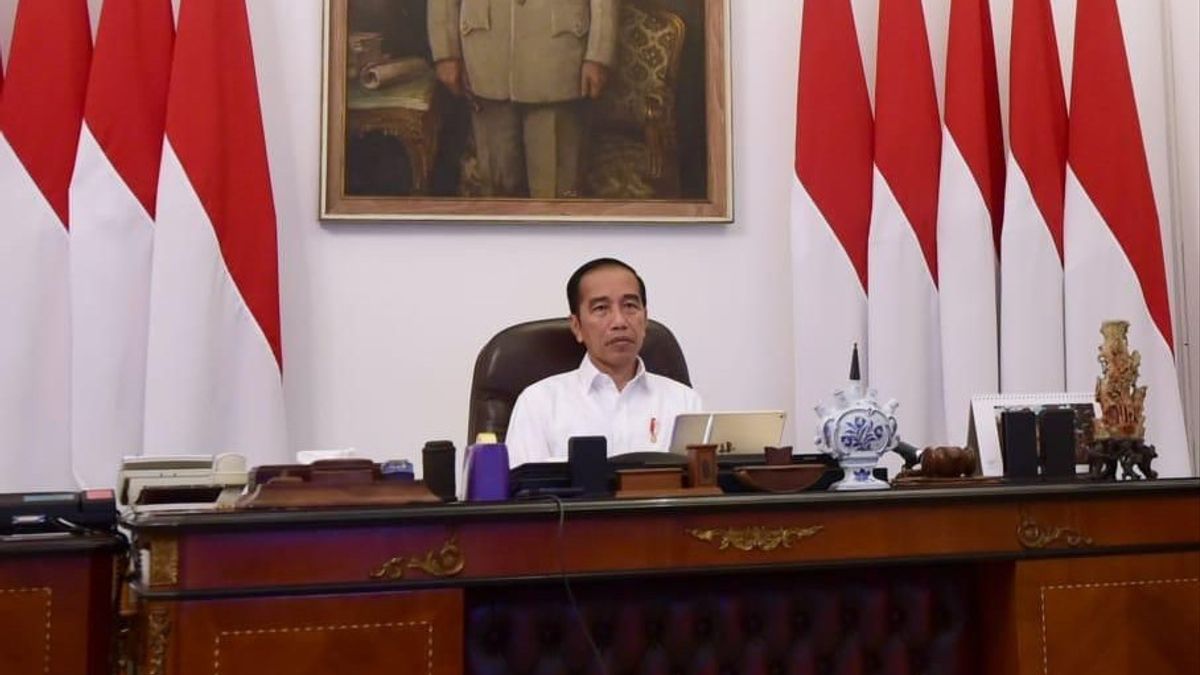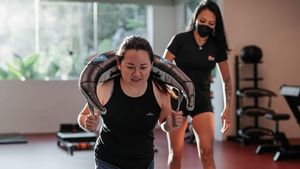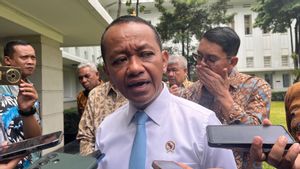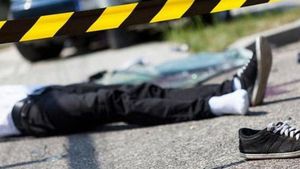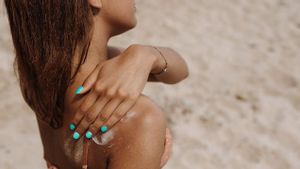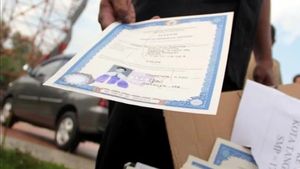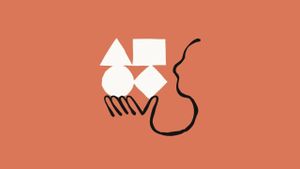JAKARTA - President Joko Widodo is increasingly determined to provide chloroquine. He said, currently, the government already has 3 million stocks of chloroquine. This drug is expected to help cure positive patients with the COVID-19 virus.
However, chloroquine is not sold freely in the market. Because, its use must be prescribed by a doctor. In the hospital, it is only given to patients who are considered suitable for receiving chloroquine intake.
"For COVID-19 patients who are in the hospital, if the doctor who treats them (states) that this chloroquine is suitable for that patient, it will definitely be given," Jokowi said at a press conference at Wisma Atlet, Central Jakarta, Monday, March 23.
However, Jokowi emphasized that the drug produced by Kimia Farma, a domestic company, is not the main cure for the corona virus.
Because, until now in the whole world there has been no country that has been able to find and prove a cure for the corona virus. Likewise with the antivirus, no party has yet been able to trigger it.
"Chloroquine is not a first line drug, but a second line drug. However, from the experience of several countries, this chloroquine has been used and many COVID-19 patients have recovered and their condition has improved," Jokowi explained.
For information, Chloroquine is a synthetic version of quinine, which is a natural compound extracted from the bark of the quinine tree since the early 1600s. This drug has been used by malaria patients for several centuries.
According to Karla Satchell, a microbiologist at Northwestern University Feinberg School of Medicine, the work of this drug slows down the replication of viruses entering cells.
To fight malaria, it is important to poison the digestive system of several blood parasites in the genus Plasmodium which are spread to humans via infected mosquitoes.
COVID-19 is caused by the novel coronavirus, not a parasite. The researchers hypothesized that chloroquine could help patients slow the spread of the virus.
Chloroquine limits the ability of the virus to use the space in cells (called vacuoles) to enter its target. Think of it as "room" in the body giving the immune system time to catch up.
Clinical trials conducted in China to test the efficacy of chloroquine against the novel coronavirus early results suggest the potential to reduce viral replication rates.
Chloroquine is known to be safe for humans (although it can cause poisoning at overdose levels). In preclinical research, this drug has been shown to be effective against viral infections such as acute respiratory syndrome (SARS), Middle East respiratory syndrome (MERS) and HIV.
The English, Chinese, Japanese, Arabic, and French versions are automatically generated by the AI. So there may still be inaccuracies in translating, please always see Indonesian as our main language. (system supported by DigitalSiber.id)
